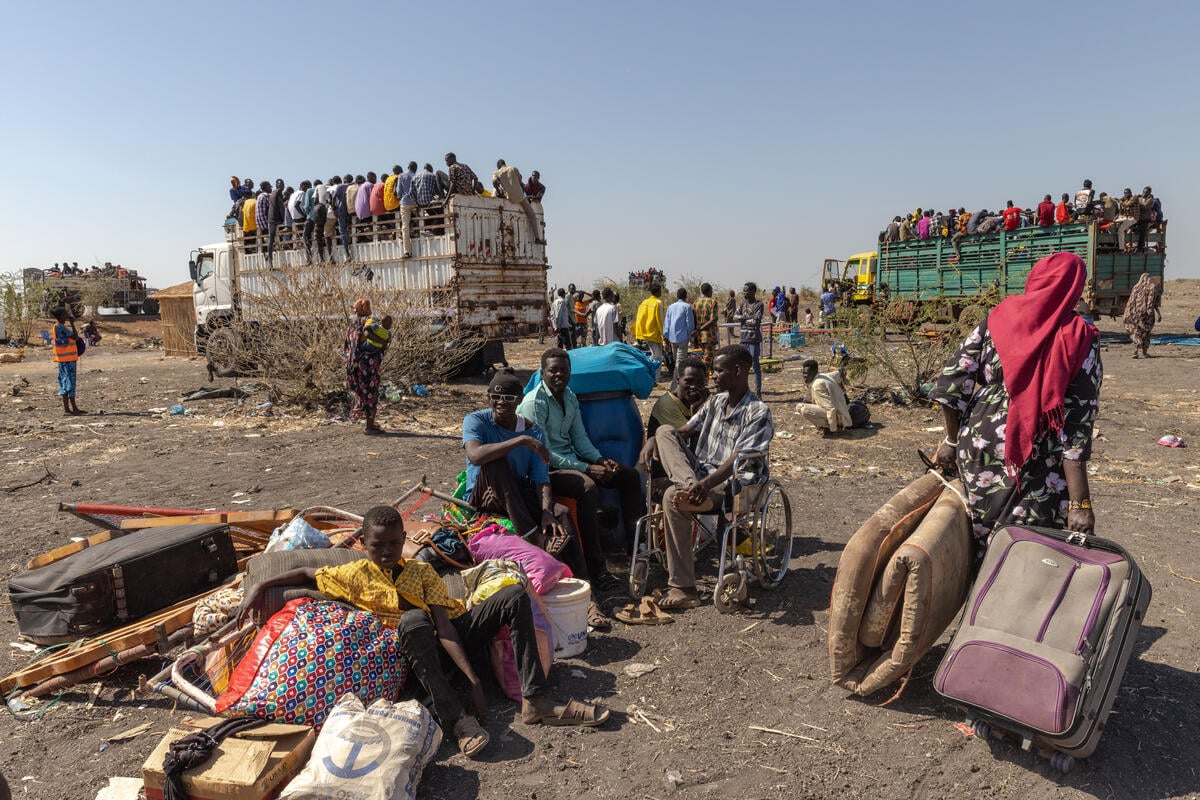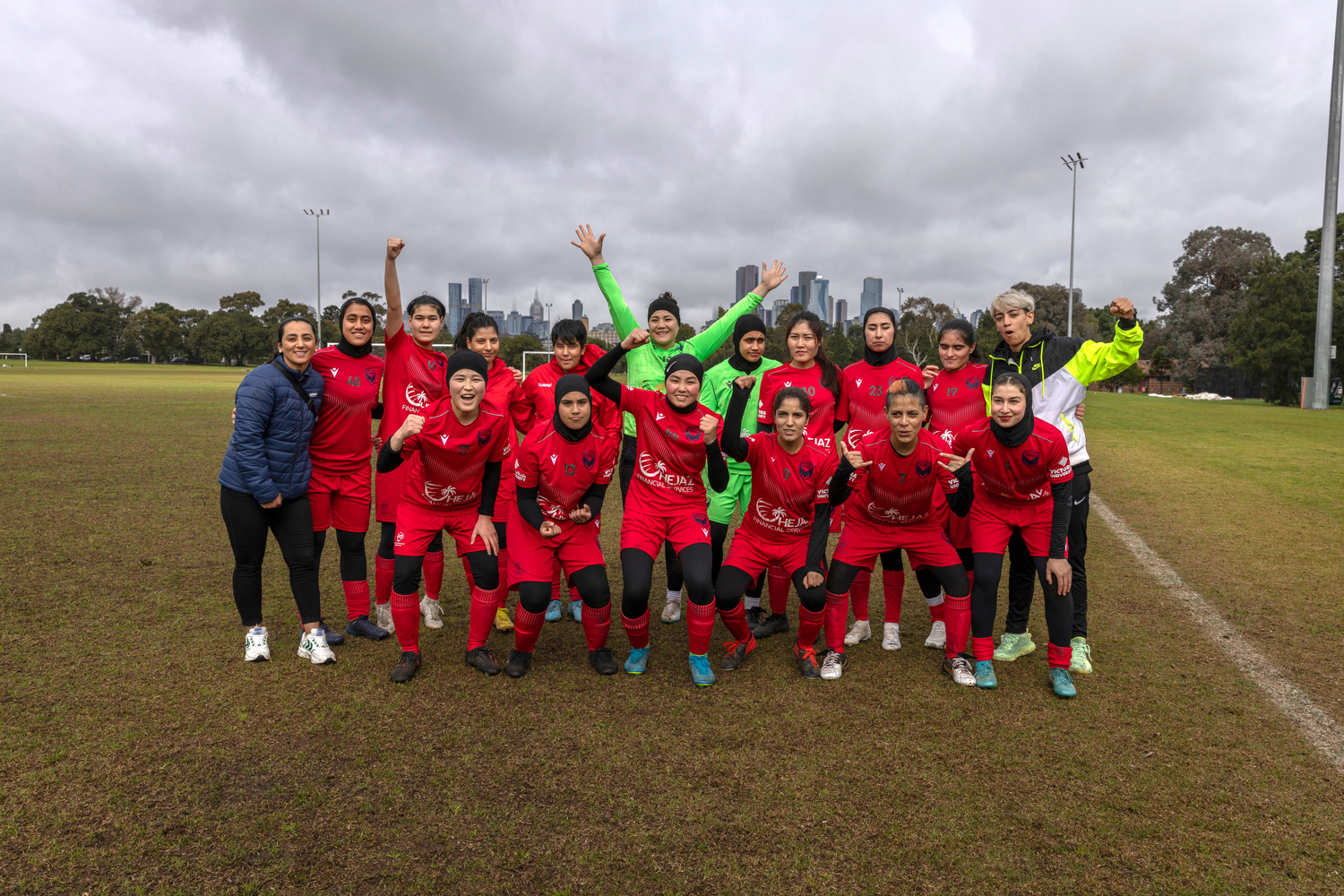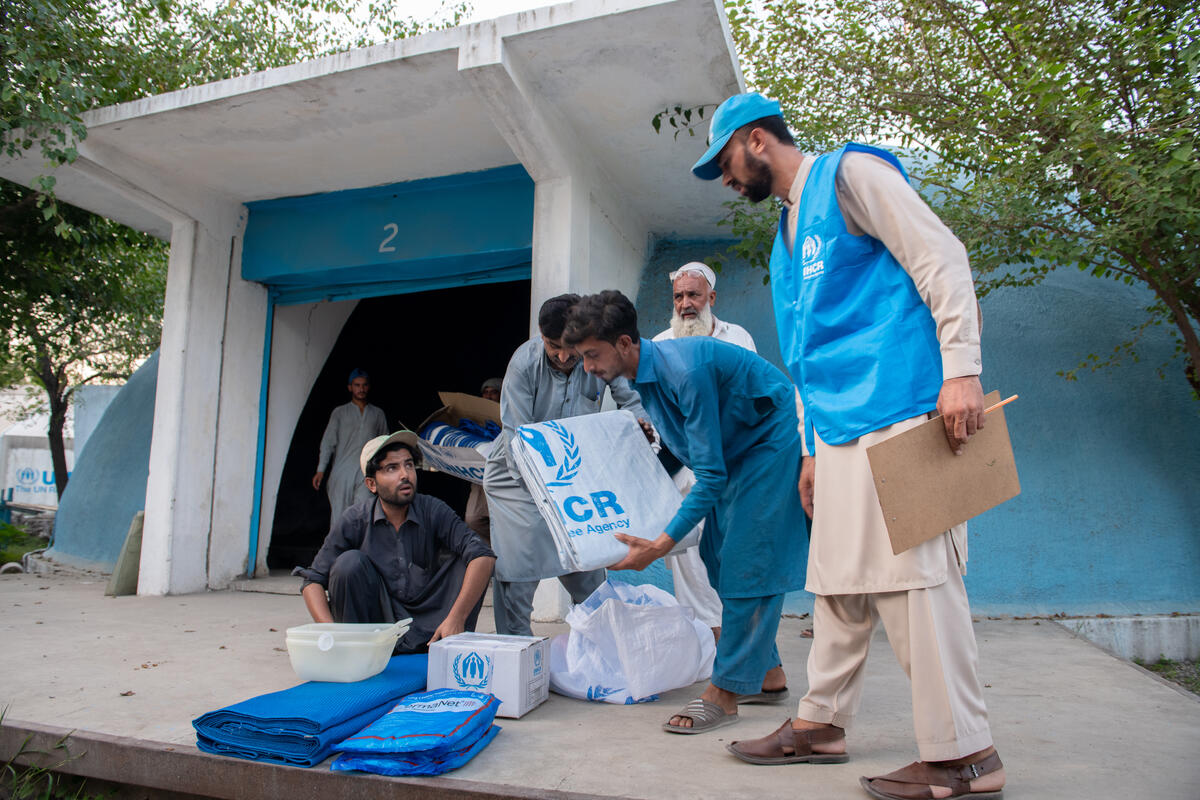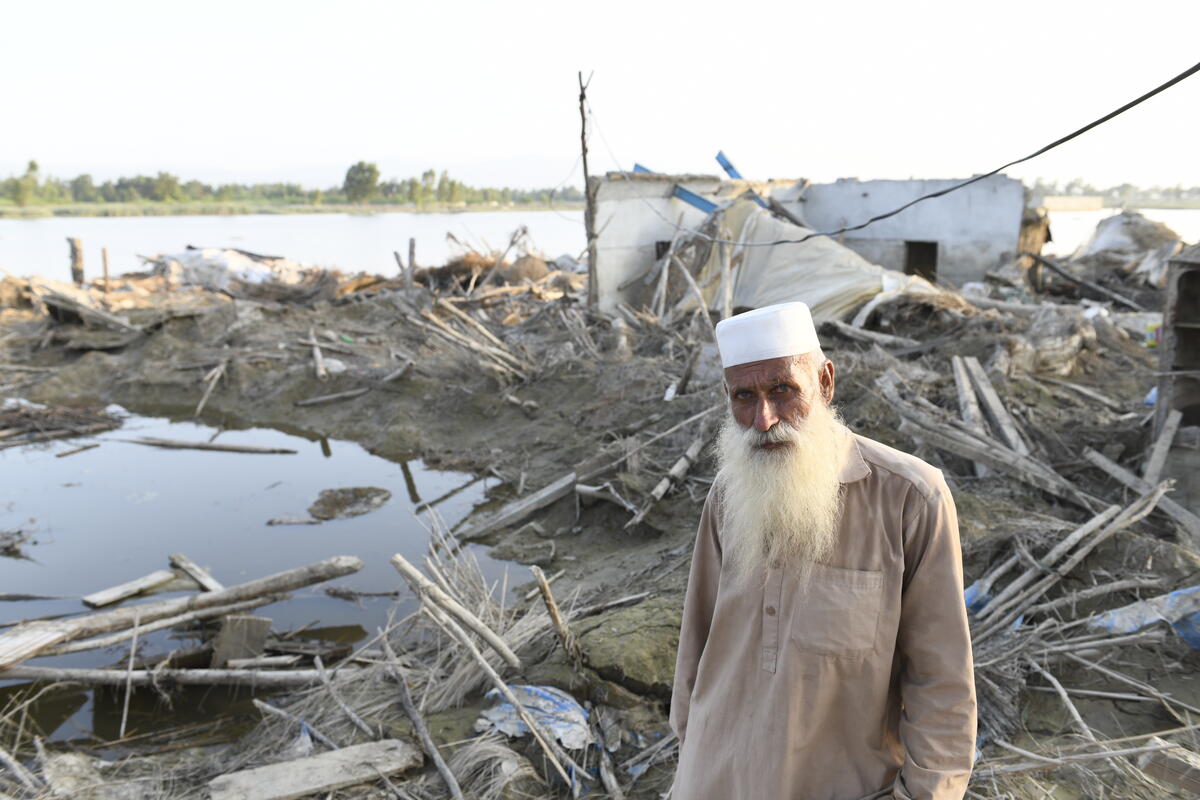Afghan refugee turns rug exporter in Pakistan
Afghan refugee turns rug exporter in Pakistan

LAHORE, Pakistan, April 11 (UNHCR) - Haji Nasim's life is like an intricately woven carpet, one that weaves through the rugged region from one end of Afghanistan to the opposite end of Pakistan.
Born in Pashtun Kot in north-western Afghanistan's Faryab province, the ethnic Uzbek grew up in a family that made and traded in carpets. The family moved to the Afghan capital, Kabul, soon after the Soviet invasion in late 1979. Haji Nasim and his brother ventured further and in the mid-1980s set up a carpet showroom in the eastern Pakistani city of Lahore, trading in carpets made in Afghan refugee villages in Pakistan. His brother stayed in Pakistan but Haji Nasim returned to Kabul.
"I was still hopeful that the situation would improve in Afghanistan and therefore did not decide to stay in Pakistan," he said. "Unfortunately, things deteriorated and we had no choice but to take refuge in Pakistan in 1988."
The family business flourished in Lahore, and in 1996, Haji Nasim decided to move beyond carpet trading to carpet manufacturing. "At that time, hand-made carpets with vegetable dyes were very popular in the United States and it seemed to be a profitable business," said the savvy businessman.
In 2000, he registered his company, Nasim Carpet Private Limited, in Lahore. At its peak, the company employed over 10,000 people, mostly of Turkmen, Hazara and Tajik ethnicities. Currently, some 5,000 workers are involved in different stages of carpet making, such as designing, wool dyeing, spinning and weaving. In addition to his factory in Lahore, he has commissioned work in different refugee villages throughout Pakistan.
The company exports some US$3 million worth of carpets every year with the "Made in Pakistan" label. Some 90 percent of the carpets go to the United States, where Haji Nasim deals with 10 different companies and has won an award in a carpet exhibition in Atlanta. The rest of the exports go to Europe.
He recently set up a sales centre in San Francisco "to know about the trends and to be able to deal more directly with the customers." But while he is eager to expand his business in the West, his heart remains in Pakistan.
"I am really grateful to the people and government of Pakistan because they gave the refugees all the facilities needed to establish and grow their business," said Haji Nasim, adding that it takes two hands to clap: "Hardworking refugees availed the opportunity and have proven themselves. Refugees involved in carpet weaving are always self-reliant and never depend on any kind of aid because they can earn a living themselves."
There are an estimated 20,000 Afghan carpet weavers in Pakistan, according to the registration of Afghans in Pakistan conducted from October 2006 to February 2007.
By Rabia Ali in Lahore, Pakistan









